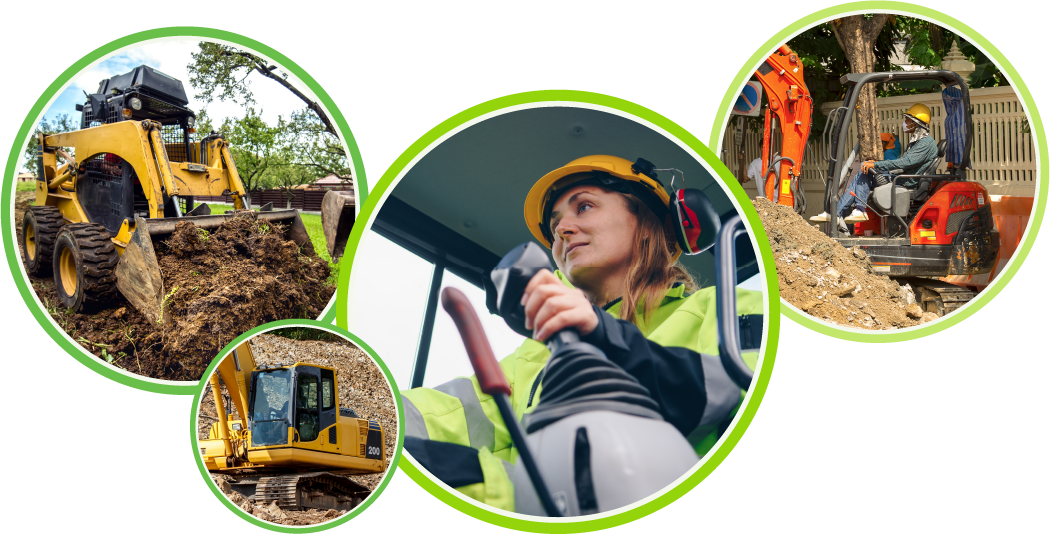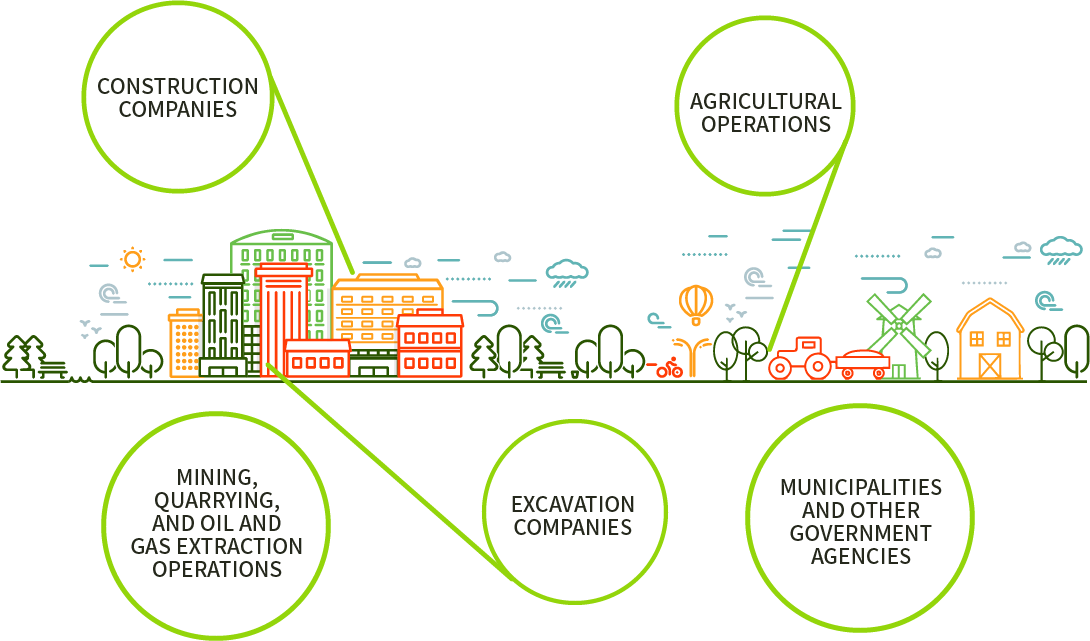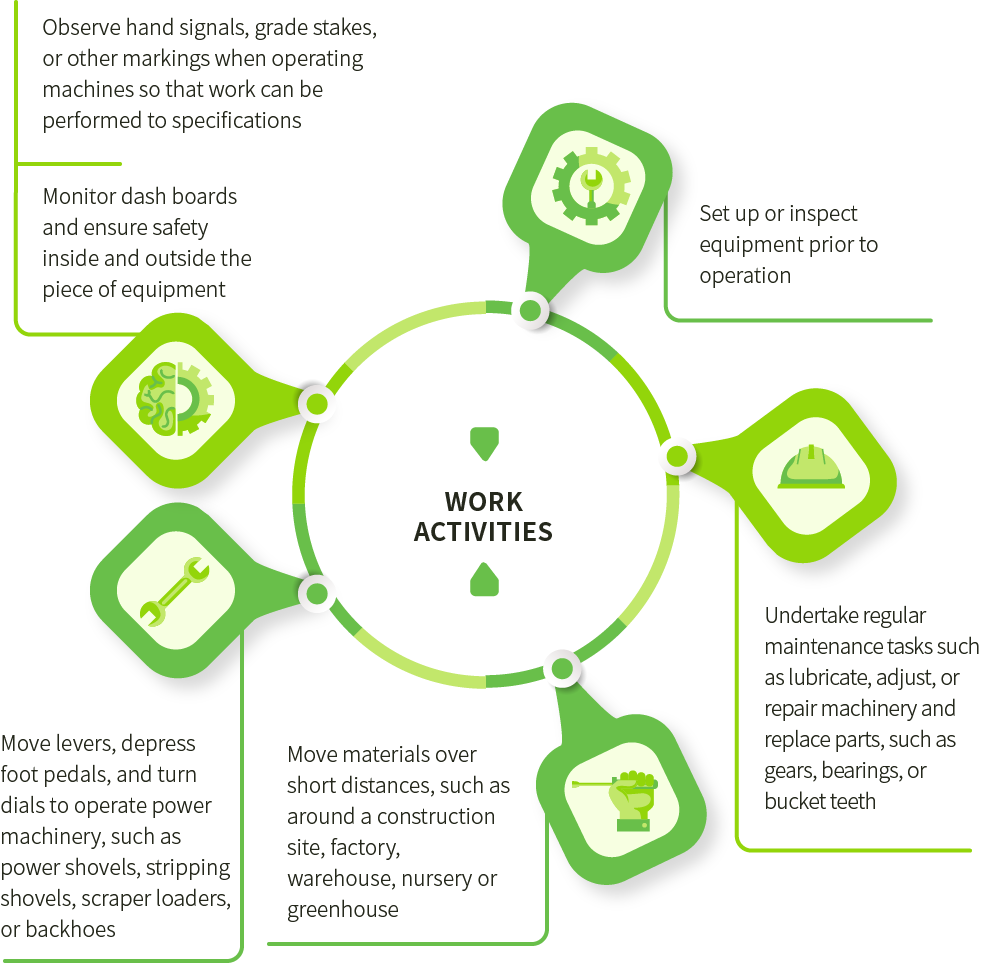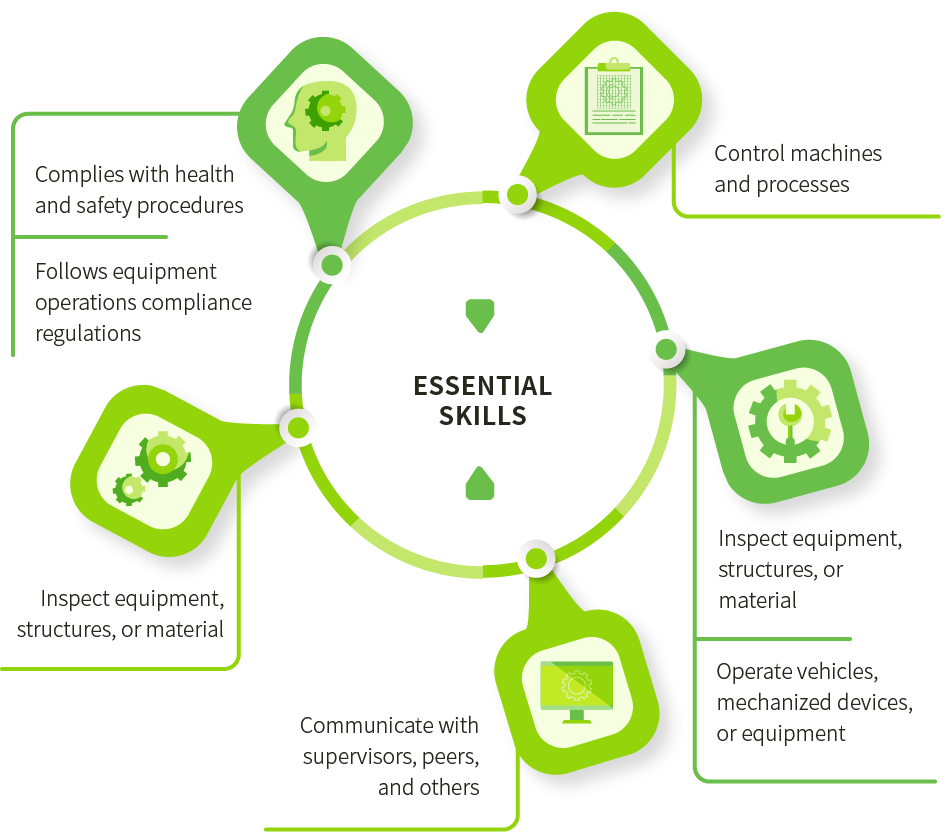
LANDSCAPE HEAVY EQUIPMENT OPERATOR
The work done by the landscape and horticulture industry in Ontario can range from small residential sites to extensive commercial projects. Some landscaping projects require the use of heavy landscaping equipment for work that cannot be done by hand. A landscape heavy equipment operator is responsible for safely operating equipment on landscape construction or grounds maintenance job sites. Landscape heavy equipment operators may also be responsible for supporting other landscaping labourers and technicians as required. The equipment used by landscape heavy equipment operators can include, but is not limited to: excavators, skid-steers, posthole diggers, crane/bucket trucks, front end loaders, bulldozers, chipper shredders, and backhoes. It is not necessary for heavy equipment operators in landscaping to have certifications prior to getting hired, since many employers will teach operators how to safely operate the equipment while on the job.

BACKHOE OPERATOR, SKID-STEER OPERATOR, BULLDOZER OPERATOR, EXCAVATOR OPERATOR, SIDE BOOM TRACTOR OPERATOR, LOADER OPERATOR, CRANE TRUCK OPERATOR, BOOM OPERATOR
Heavy equipment operators play an important role in landscape construction and grounds maintenance. In general, they:
- Operate heavy equipment such as backhoes, chipper trucks, bucket trucks, bulldozers, loaders and graders to excavate, move, load and grade earth, rock, gravel or other materials during landscape construction and related activities
- Operate power shovels to excavate rock, ore or other materials
- Operate heavy equipment to move, load and unload cargo
- Support other landscaping crew members with construction or maintenance tasks
While some heavy equipment operators work in landscaping, this occupation is in demand across many industries and can be employed by:

As a provincially regulated but voluntary trade, heavy equipment operators can advance their skills and expertise through additional training through further education as well as through on- the-job training. In Ontario, there are three different options for provincial trade certification for heavy equipment operators: dozer, excavator, and tractor loader backhoe. Most heavy machinery has its own certification, so a heavy equipment operator will have to earn one for every vehicle they want to operate. Most employers will walk you through obtaining your certifications. With enough experience, equipment operators may advance to supervisory positions or start their own companies.
Future employment prospects for heavy equipment operators in Ontario are positive. In 2020, there were over 600 job postings for heavy equipment operators across Ontario.
In Ontario, the median annual wage for a Landscape Heavy Equipment Operator is $58,240. Pending experience, responsibilities, location, hours of work, and qualifications a Landscape Heavy Equipment Operator can expect to make between $40,997 and $86,611.



Work Context
Wear appropriate personal safety equipment (safety shoes, glasses, gloves, hearing protection, hard hats)
Spend time using hands to handle, control, or feel objects, tools, or controls
Exposed to whole body vibration
Work Attributes
Dependability
Attention to detail
Independence
Adaptability/flexibility
Mechanically inclined
HOW DO I BECOME A HEAVY EQUIPMENT OPERATOR IN ONTARIO?
There is no singular path to becoming a heavy equipment operator in landscaping. In Ontario, some people will begin as landscape or construction labourers and later acquire additional training and experiences to become a certified heavy equipment operator.
Although apprenticeship options are available, some employers do not require trade certification to secure employment. Many employers provide on the job training for equipment operation. Individuals can gain several years of practical experience on the job and supplement that on the job learning with educational and training courses on equipment operation.
Many Ontario colleges offer heavy equipment operator programs, which will give you a solid foundation for learning what is required to safely operate heavy equipment.
Examples of in-school training can include, but is not limited to:
- Safety procedures
- General preventive maintenance
- How to operate heavy equipment (dozers, excavators, backhoes, etc.)
- Transporting equipment
HOW DO I BECOME A CERTIFIED HEAVY EQUIPMENT OPERATOR?
There are three voluntary skilled trades associated with this occupation in Ontario: dozer, excavator, and tractor loader backhoe. Upon completing the necessary apprenticeship training program, individuals are issued a Certificate of Apprenticeship, which confirms that someone has the skills, knowledge and experience that meet industry standards. The apprenticeship takes approximately one and a half years to complete and consists of on-the-job and in-school training.
© Copyright 2024 Green Careers Canada – Landscape Ontario Horticultural Association & Canada Nursery Landscape Association.
Privacy Statement | Legal Terms and Conditions

Follow us on Instagram #GreenCareersCanada
[insta-gallery id="0"]